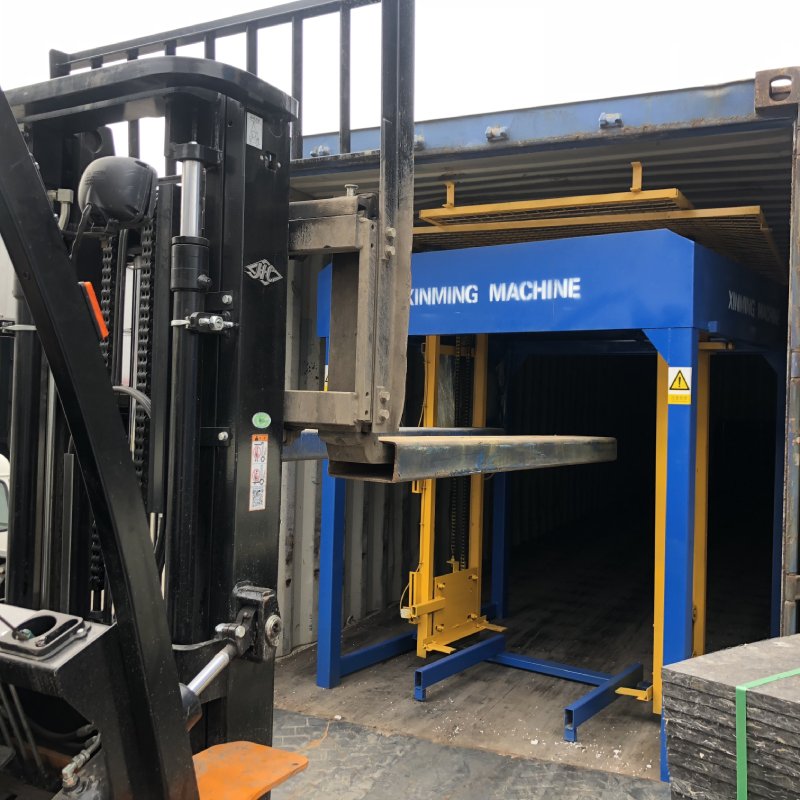
Image source:Aiwei block machine
Introduction
Sustainable construction has emerged as a global imperative, driven by environmental concerns, resource scarcity, and the need to create more resilient and energy-efficient buildings. In this context, solid block machines, which produce the fundamental building blocks of many structures, play a pivotal role in shaping the sustainability landscape of the construction industry. This article explores how solid block machines are contributing to sustainable construction practices worldwide.
Efficient Resource Utilization
Traditional brick and mortar construction often entails significant resource wastage, especially in terms of raw materials like clay, sand, and cement. Solid block machines, on the other hand, optimize resource utilization. They produce solid blocks using concrete mixes that incorporate recycled materials, such as fly ash, slag, or even construction waste, reducing the environmental impact associated with raw material extraction.
Moreover, these machines typically operate with precision, minimizing the risk of errors and material wastage during block production. The result is a more efficient use of resources and a reduction in the construction industry’s overall ecological footprint.
Reduced Carbon Emissions
The production of solid blocks using block machines is inherently less carbon-intensive than traditional brickmaking. These machines operate with lower energy consumption, and advancements in machine design have led to the development of more energy-efficient models. Additionally, the use of alternative, lower-carbon binders and aggregates in concrete mixes contributes to a reduced carbon footprint in the construction process.
Furthermore, some solid block machines are equipped with features that capture excess concrete, recycle it, and use it in subsequent block production. This closed-loop approach minimizes waste and reduces the need for additional raw materials, further curbing carbon emissions associated with transportation and material extraction.
Enhanced Thermal Efficiency
Solid blocks produced by block machines often possess superior thermal properties compared to traditional bricks. The increased thermal mass and insulation capabilities of these blocks contribute to better energy efficiency in buildings. They help regulate indoor temperatures, reducing the need for heating and cooling systems, and subsequently, energy consumption.
In regions with extreme weather conditions, such as hot summers or harsh winters, the use of solid blocks from block machines can lead to substantial energy savings over the life cycle of a building. Sustainable construction practices prioritize designs that optimize natural heating and cooling, and solid blocks align well with these objectives.
Water Conservation
Water scarcity is a growing concern in many parts of the world, making efficient water use a crucial aspect of sustainability. Solid block machines can contribute to water conservation in construction by utilizing dry or semi-dry concrete mixes. Unlike traditional brickmaking processes that require extensive wetting and curing, these machines rely on mechanical compaction to form blocks.
This reduced water requirement not only conserves a precious resource but also mitigates the environmental impact associated with water extraction and treatment. Moreover, it minimizes wastewater generation on construction sites, reducing the potential for water pollution.
Durability and Longevity
Sustainability in construction is not only about resource efficiency but also about the longevity and resilience of structures. Solid blocks produced by block machines are known for their durability and resistance to wear and tear. They are less prone to cracking, which can extend the lifespan of buildings and reduce the need for maintenance and repairs.
The longevity of solid blocks contributes to sustainability by reducing the frequency of material replacement, which, in turn, conserves resources and reduces construction-related waste. Buildings made with these blocks often have longer service lives, making them more sustainable in the long run.
Localized Production and Reduced Transportation
Solid block machines can be deployed at or near construction sites, enabling localized production. This minimizes the need for transporting heavy bricks or blocks over long distances, which can be energy-intensive and environmentally taxing. By producing blocks on-site or nearby, construction projects reduce their carbon footprint associated with transportation.
Furthermore, localized production can stimulate local economies by creating job opportunities and supporting small-scale block manufacturing businesses. This aligns with sustainable development goals by promoting economic growth and social well-being.
Conclusion
Sustainable construction with solid block machines is an essential component of the broader effort to reduce the environmental impact of the building industry. These machines optimize resource utilization, reduce carbon emissions, enhance thermal efficiency, conserve water, and promote durability and longevity in structures. By prioritizing sustainability in construction practices and embracing the advancements offered by solid block machines, the construction industry can build a greener, more resilient future.
